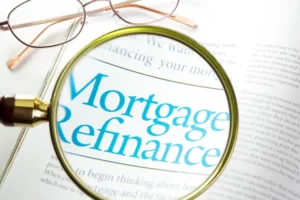The ideal mortgage would be one with a lower-than-market interest rate that is open to prepayment and flexible in every way.
While lenders inevitably fall short of this ideal, keen competition for mortgage business has made them more obliging, especially if you have other business they would like to win. Indeed, the number of choices can make assembling the right mortgage appear overwhelming, especially to first-time homebuyers.
Here are some guidelines to help you find your way through the maze of mortgage options, including:
* Short or long-term
* Open mortgages
* Variable rate mortgages
* Convertible mortgages
* Amortization
* Early renewal
Short or Long Term?
When you choose the term of your mortgage, you’re forced to bet on the future direction of interest rates. Over the life of your mortgage, the choices you make can have a huge impact on the amount of interest you pay out.
The Short
If you think interest rates are likely to fall, then a six-month or one-year term makes sense for two reasons. First, interest rates on short-term mortgages are lower than rates on long-term loans. Second, they give you the option to quickly renew at still lower rates when your existing term runs out (if rates do trend lower). Even if rates are at the same level when it comes time to renew, you are still ahead because of the lower cost of short-term mortgages.
And the Long
If you think interest rates are more likely to rise, you will want to lock in today’s rates for a number of years. But for how long?
Begin by looking at the difference in rates for different terms. How much more will you pay for a five-year loan than a one-year? What is the cost of a three or four-year mortgage? The difference can fluctuate greatly, depending on market conditions.
Watch The Trends
Next, consider where interest rates sit compared to recent years. If they are at or near historic lows, it may be prudent to choose a longer term. This will protect you from having to renew in one or two years, when rates could potentially be higher. Alternatively, if rates are at historic highs and seem to be in a downward trend, selecting a short term may be a safer bet.
Everybody Needs to Dream
Since no one can accurately predict where interest rates are going, who you are and where you stand financially should also play an important role in determining the mortgage you choose. First-time home buyers who are already stretched to their financial limit are well-advised to shun the risk of short-term or floating-rate mortgage loans. As well, people who are naturally averse to risk may find the security of a long-term, fixed-rate mortgage more appealing, although it might cost more. Knowing how much your monthly mortgage will be, and knowing that they are fixed for a set number of years is a lot easier on the nerves for many people.
Conversely, people with good, secure incomes and substantial equity in their homes are better situated to take advantage of the lower rates offered on shorter-term mortgages. The key is that, while historically those choosing shorter-terms have benefited from lower housing costs over time, you have to be prepared for the increased financial burden you’ll have to carry when you next renew your loan if rates suddenly spike upwards.
Open Mortgages
If you want to postpone your decision to a more favorable time – say when you think interest rates will be lower, an open mortgage may be for you. An open mortgage means that you have the right to pay off your loan in full at any time without having to pay extra fees or penalties. Lenders generally offer them for terms of six months or a year.
With an open mortgage, you can respond immediately to changing market conditions. Rather than having to wait for your term to be up, you can simply pay off your mortgage, and then renew your loan for the same amount at the lower rate. However, this freedom comes at a price. You’ll generally have to pay up to 1 per cent more for an open mortgage over a closed mortgage. You will have to weigh the higher cost against the potential savings.
If you know you are going to be selling your house in the near future, an open mortgage makes sense because it means you can pay off the mortgage with the profits from your sale, without incurring any penalties.
Convertible Mortgages
Some lenders, eager to win mortgage business, are offering convertible mortgages in which you can start with a short-term loan and convert to a longer-term one when you think the time is right. These loans are often an excellent choice, giving you the lowest current rate, with the added protection of being able to lock in should rates start heading up.
Amortization
The amortization of a mortgage is simply the period of time over which the loan is spread. Most mortgage loans are automatically amortized over 25 years. That is the amount of time it would take to repay the loan in full. However, you are free to choose a shorter amortization if you wish. By shortening the amortization, you will pay more each month, but you will save thousands of dollars in interest.
Early Renewal
Perhaps the most important of the new mortgage features is the early renewal option, offered by a number of lenders. This allows you to renew your mortgage, generally any time during the last year of the mortgage, instead of having to wait for the end of the term. If interest rates have fallen, this feature could save you a substantial sum.
Putting It All Together
As you can see, the decision to buy a house using borrowed money brings with it many additional decisions. Take some time to understand your options, and don’t rush into any agreement without understanding the implications of these decisions. A good mortgage agreement will save you money, time, and headaches. Find a lender who will help you understand your choices, and who is willing to put together a package that works for you and your family. And remember that each time your loan comes up for renewal, you have the chance to restructure it to take advantage of the current interest rate environment and your changing financial circumstances.
Other Related Information
Your Annual Mortgage Review
Mortgage After Divorce Tips
Mortgage Vancouver Bc





